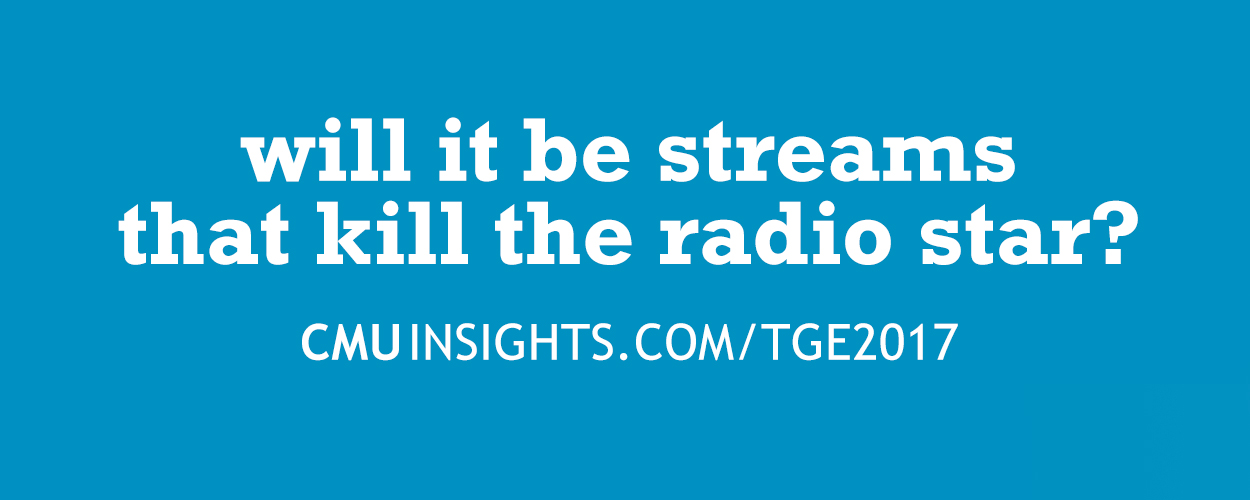This website uses cookies so that we can provide you with the best user experience possible. Cookie information is stored in your browser and performs functions such as recognising you when you return to our website and helping our team to understand which sections of the website you find most interesting and useful.
Business News Education & Events Media The Great Escape 2017
CMU@TGE Top Ten Questions: Will it be streams that kill the radio star?
By Chris Cooke | Published on Monday 15 May 2017

In the run up to this year’s CMU Insights @ The Great Escape conference, we are going through the top ten questions we will be answering during this year’s programme. Today: Will it be streams that kill the radio star?
There has been lots of chatter of late about Spotify in particular, and streaming services in general, morphing into the record companies of the future, utilising their data and marketing channels to sign up and promote artists, controlling those acts’ recordings in the process, and reducing the costs of licensing in the hits from the traditional music rights owners.
Though – while some cite chatter with streaming firm execs as confirming those ambitions – actual product developments at the likes of Spotify suggest that the streaming platforms are much more likely to become the radio stations of the future, more likely securing exclusive interviews and sessions with artists, or commissioning them to make original radio-style programming, rather than buying the exclusive rights to album releases.
Either way, as streaming becomes more mainstream – and as the internet properly reaches the kitchen, the bathroom and the car – it does feel like traditional radio stations are going to face a whole new level of competition from the streamers for both audience and advertisers.
Radio stations have always stressed their USPs over emerging online music services. Human curation. On-air personalities. The power of storytelling. An understanding of what the more mainstream consumer is looking for.
All of which are valid to a point, depending on which radio station you’re talking about. But the streaming services are already treading onto some of that territory, and the next generation of digital music platforms could tick all those boxes and more.
Even if the simplicity, wide availability and – generally – free access of radio gives the medium a long-term advantage over the streaming platforms with the 25+ age group, what about younger consumers? There is an argument that radio has already lost a generation who, unlike previous generations, are not conditioned to switch on their radio set whenever they want background noise that requires no effort. This is the generation who are more likely to fire up a Spotify playlist or a tap a YouTube channel for effortless entertainment.
So, could it be streams that kill the radio star? Or will more traditional radio services – which have been wrongly written off before – retain their relevance? Or morph themselves to become the more mainstream streaming platforms?
This is the topic for conversation in the middle of Thursday’s Media Conference. Joining the debate are 7digital’s Deputy CEO Pete Downton, BBC Radio 1 Producer Kate Holder, Folder Media’s Creative Director Matt Deegan and Nats Spada from Brighton’s own youth radio venture Platform B.





